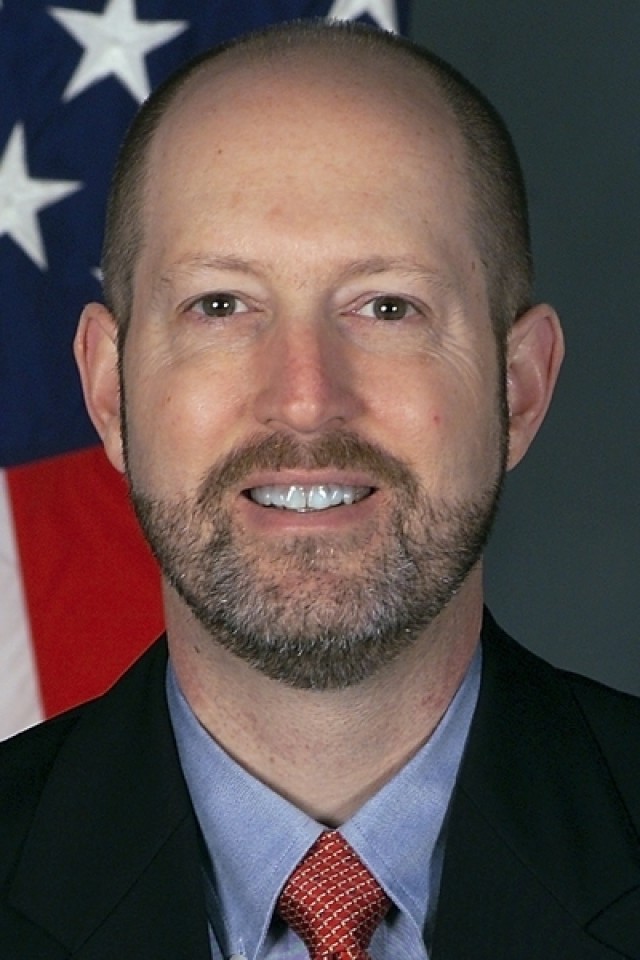HEIDELBERG, Germany -- Most good leaders, when praised for their work, direct that praise at their employees, so it should be no surprise when the Army's 2007 Alcohol and Drug Control Officer of theYear, Tim Holloman does the same.
Holloman, the ADCO for U.S. Army Garrison Baden-WAfA1/4rttemberg, said he was surprised to receive the recognition in his second year when so many of his fellow ADCOs have been in the position for many years.
To hear him put it everything just fell into place - two outstanding back-to-back organizational evaluations in 2007, supportive leadership and a great team.
Holloman leads that team, but with some personal sacrifice.
"I miss working directly with Soldiers ... as a formally trained therapist, that is what I like to do," Holloman said. "I like listening to Soldiers stories and offering help to make life changing decisions."
Now, he leads a staff of 20 employees across three military communities in providing that one-on-one counseling as well as prevention education, civilian employee assistance, biochemical collection and risk reduction programs.
"I'm glad I did it," Holloman said. He still has an effect on the lives of Soldiers, he's "just one step removed."
From his vantage point, Holloman said, he can watch others in the organization shine, such as when Heather Robinson, prevention coordinator for USAG Kaiserslautern was recently recognized as Prevention Coordinator of the Year by the Army Center for Substance Abuse Programs.
Last year, Dr. Derrick Copper from USAG Heidelberg won the same award.
Holloman said he feels most successful in his job "when an objective set of eyes can look in and say you run a well-oiled machine and have a high-quality program."
In 2007 two independent set of eyes looked at the USAG Baden-WAfA1/4rttemberg ASAP program.
The ACSAP biennial Staff Assistance Inspection found no deficiencies with the non-clinical aspects of the local program. Six weeks later, the triennial Joint Commission Survey team renewed the clinical program accreditation and the highest rating received by a Europe-based ASAP.
ASAP in Europe
The clinical evaluation is something unique to the ASAP program in Europe, Holloman said. At stateside installations, clinical alcohol and drug counseling are handled by the medical community.
The ASAP staff works with Soldiers and civilian employees, family members and retirees on a space-available basis, to "look at all aspects of their life and to develop non-chemical coping strategies," Holloman said, adding that he can't think of a time when space hasn't been available for non-Soldier appointments.
In addition to clinical services, each community has an ASAP team which handles a variety of programs.
Each community has a prevention coordinator who ensures each Soldier has four hours of alcohol and drug awareness education each year and each civilian has three hours.
Most prevention coordinators also manage awareness campaigns throughout the year.
The prevention programs are significant, Holloman said, because 98.5 percent of urinalysis tests in Europe comes back negative, demonstrating the effectiveness of the training.
The ASAP also manages the Biochemical testing program, or uninalysis, for USAG Baden-WAfA1/4rttemberg. In 2007, more than 28,000 samples were collected and delivered to Fort Meade, Md., for testing maintaining proper forensic integrity and chain of custody throughout the process. The U.S. Army Europe standard is random testing of each Soldier twice a year and random testing of more than 400 select civilian employees, based on the nature of their job.
Holloman said each prevention coordinator is dual-hatted and also manages the communities Employee Assistance Program.
The EAP is a program designed to help civilian employees who have job-affecting personal problems through short-term intervention or referral to an appropriate resource.
When an employee works with an EAP counselor, the session is confidential except in cases of abuse, neglect or threats of violence against one's self or others.
Another program managed by ASAP is the Risk Reduction Program. The risk reduction coordinator evaluates 15 high-risk behaviors that affect unit readiness and compares the results to army-wide trends and presents the information to commanders.
Commanders can then use the information to provide additional training and resources to reduce the risk.
Each program that the ASAP manages is ultimately a commander's program, Holloman said, and USAG Baden-WAfA1/4rttemberg has commanders who are involved in prevention, detection and counseling.
"(Holloman) manages the ASAP program for the commanders, and they give us the support we need," said Ronald Joseph, human resources director, USAG Baden-WAfA1/4rttemberg.
"The level of professionalism in our ASAP program is recognized at the (Installation Management Command) level and other garrisons, too," he said. "They truly trust in our abilities.
"We have a very intellectually experienced staff, but everybody needs coaching," Joseph said. "(Holloman) sets the tone for the whole team ... He provides that coaching."
(Editor's Note: Jason Austin writes for the USAG Baden-Wuerttemberg newspaper, the Herald Post.)


Social Sharing